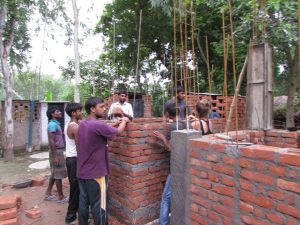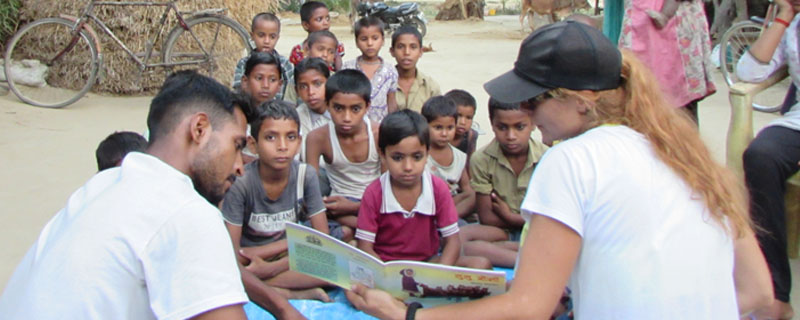Swachh Bharat Abhiyaan, an ambitious project launched by the Central Government aims to make India open defecation free by October 2019, the 150th anniversary of Mahatma Gandhi.
To reach this goal, plenty needs to be done at various levels pan-India. While the government and corporate firms are doing their bit, citizens are coming forward too. Not only Indians, but also foreign nationals are contributing with innovate solutions to help India achieve its goal.
Marta Vanduzer-Snow is an American Ph.D student who moved to India four years ago. An Amartya Sen development economics fan, Marta constructed 82-low cost evapotranspiration toilets (a process in which liquid waste is put on ground for evaporation and absorption by trees and plants) and in residential areas, in a primary school and a 10-feet-wide 122-meters of permeable roads. Surprisingly, these evapotranspiration toilets were constructed at half the cost of similar government projects in the villages of Raebareli and Amethi in Uttar Pradesh.
Each toilet constructed under Swachh Bharat Abhiyan costs about Rs 12,000 to 15,000 but the evapotranspiration toilets constructed by Marta costs Rs 9,109. A 100-meter permeable road which was constructed to improve transportation and accessibility costs Rs 2 lakh against the government’s cost of Rs 4 lakh per 100 metre of interlocking roads.

Construction of toilets in one of the villages.
“Constructing toilets is one aspect of our efforts to promote hygiene. Monitoring toilet usage and functioning helps us in improving our efforts,” says Marta while sharing her experience on improving sanitation conditions in the society. “It is challenging to get support for new ideas and methods. It was difficult to source good quality materials in rural parts but through team dedication we have been able to execute these projects,” she adds.
Before moving to India, Marta grew up in Boston, United States and has co-authored various books, research papers and worked along with various academicians. During her research she developed a three-pronged strategy on development that integrates infrastructure, health and education.
When asked about why she chose Raebareli and Amethi to execute projects, Marta says, “I lived in India for 4 years (2004-08) and during my stay I worked with many renowned personalities. I was comfortable to execute projects with the involvement of active self-help groups.”
Apart from hygiene and connectivity which are the main areas of her focus, she realised that many communities still did not have access to electricity. Immediately, 27 solar power plants were set up including two street lights and a mobile charging unit.
To improve accessibility to potable water she got French drains built, that would utilize mycofiltration system (process which utilises mushroom mycelium mats as filters) to store rainwater.
During her work in rural parts she witnessed that majority people lacked knowledge of organic farming. Along with her programme coordinator Pawan Singh, she initiated literacy programs, which incorporated written English and organic farming. To improve infrastructure, libraries were set up to aid the pilot stage of four classrooms.
‘Mera Doctor’, a medical facility, offers 24×7 free professional medical services as per the requirements of the villages.
Thank you for reading the story until the very end. We appreciate the time you have given us. In addition, your thoughts and inputs will genuinely make a difference to us. Please do drop in a line and help us do better.
Regards,
The CSR Journal Team


